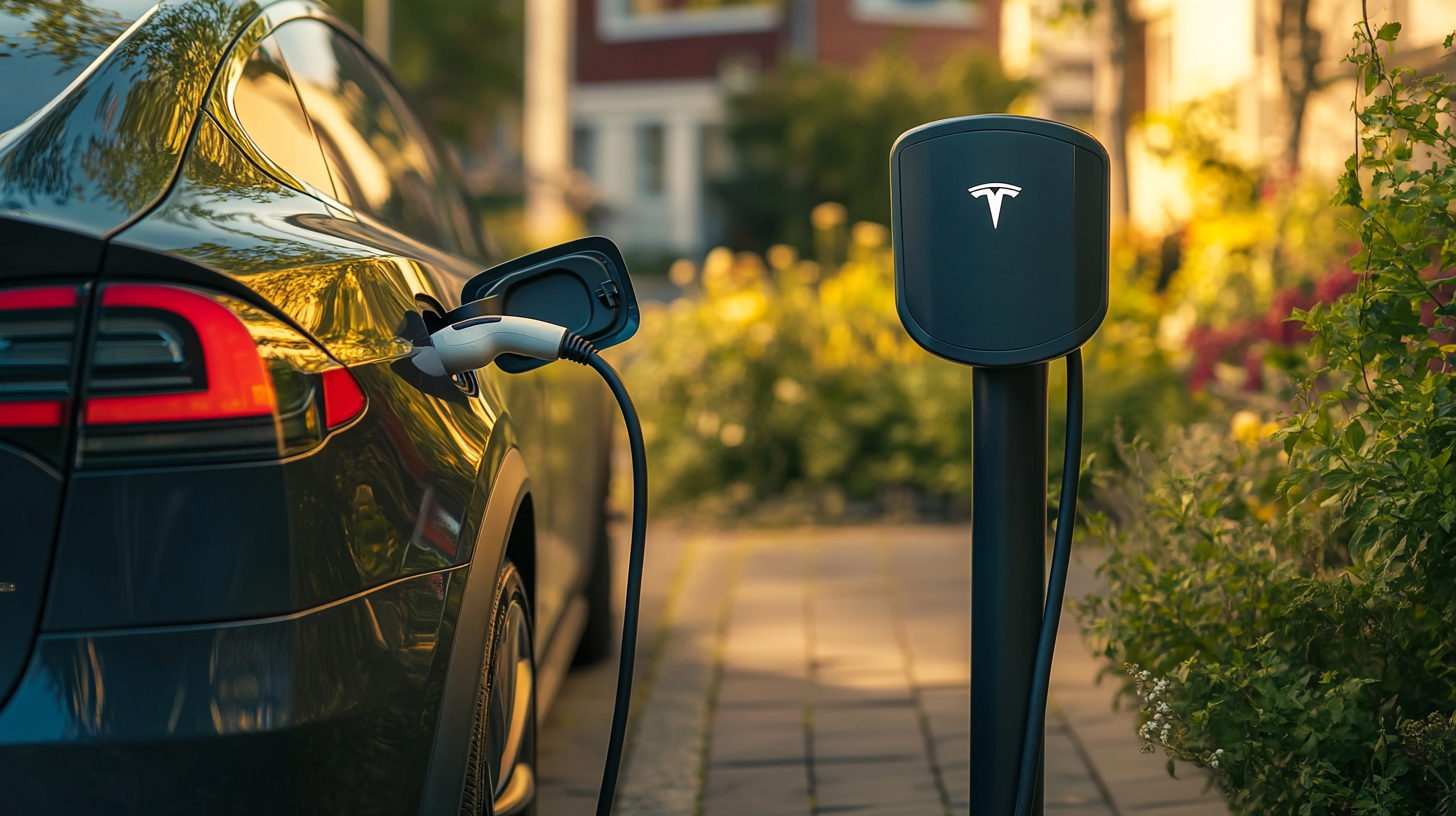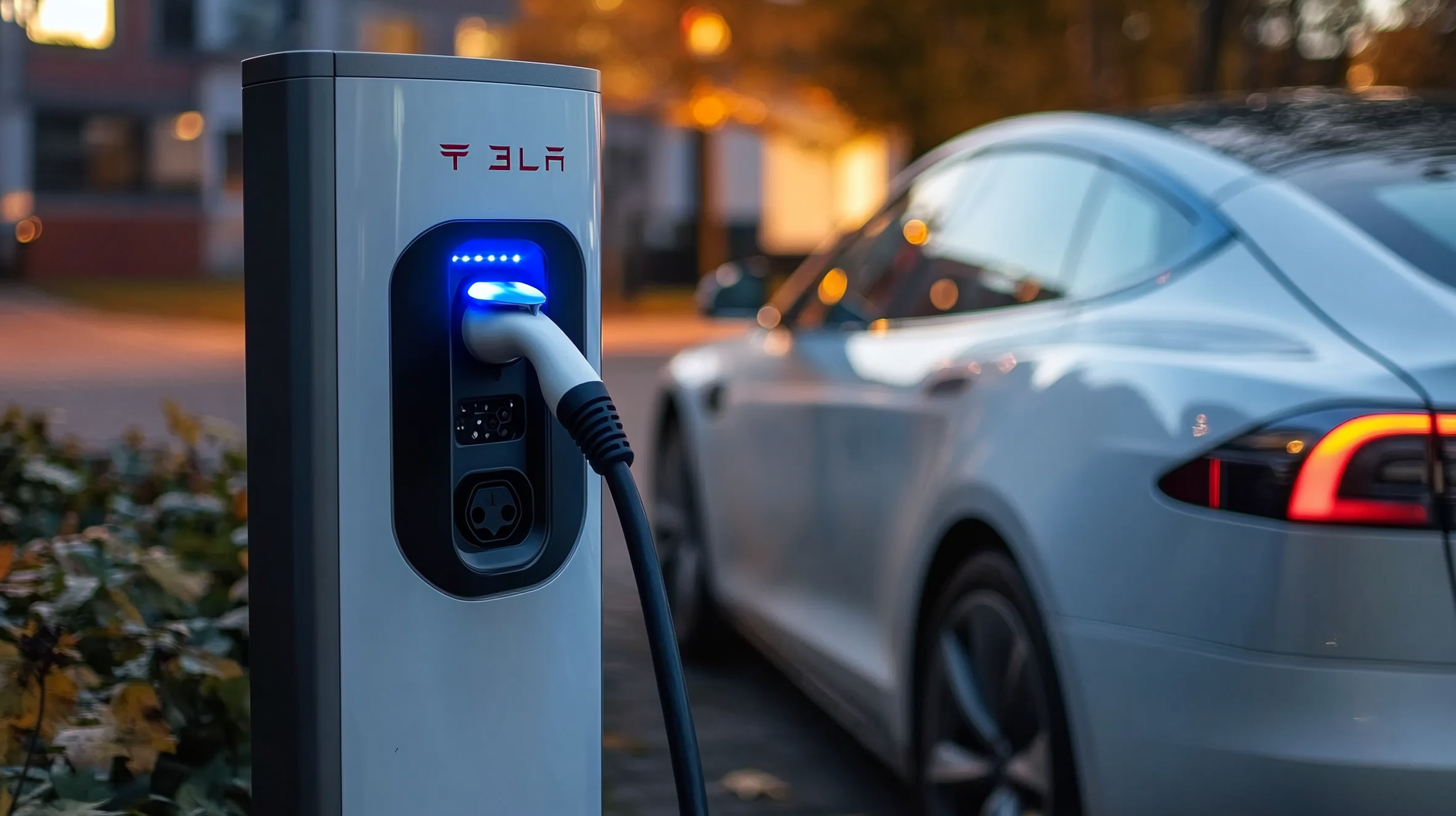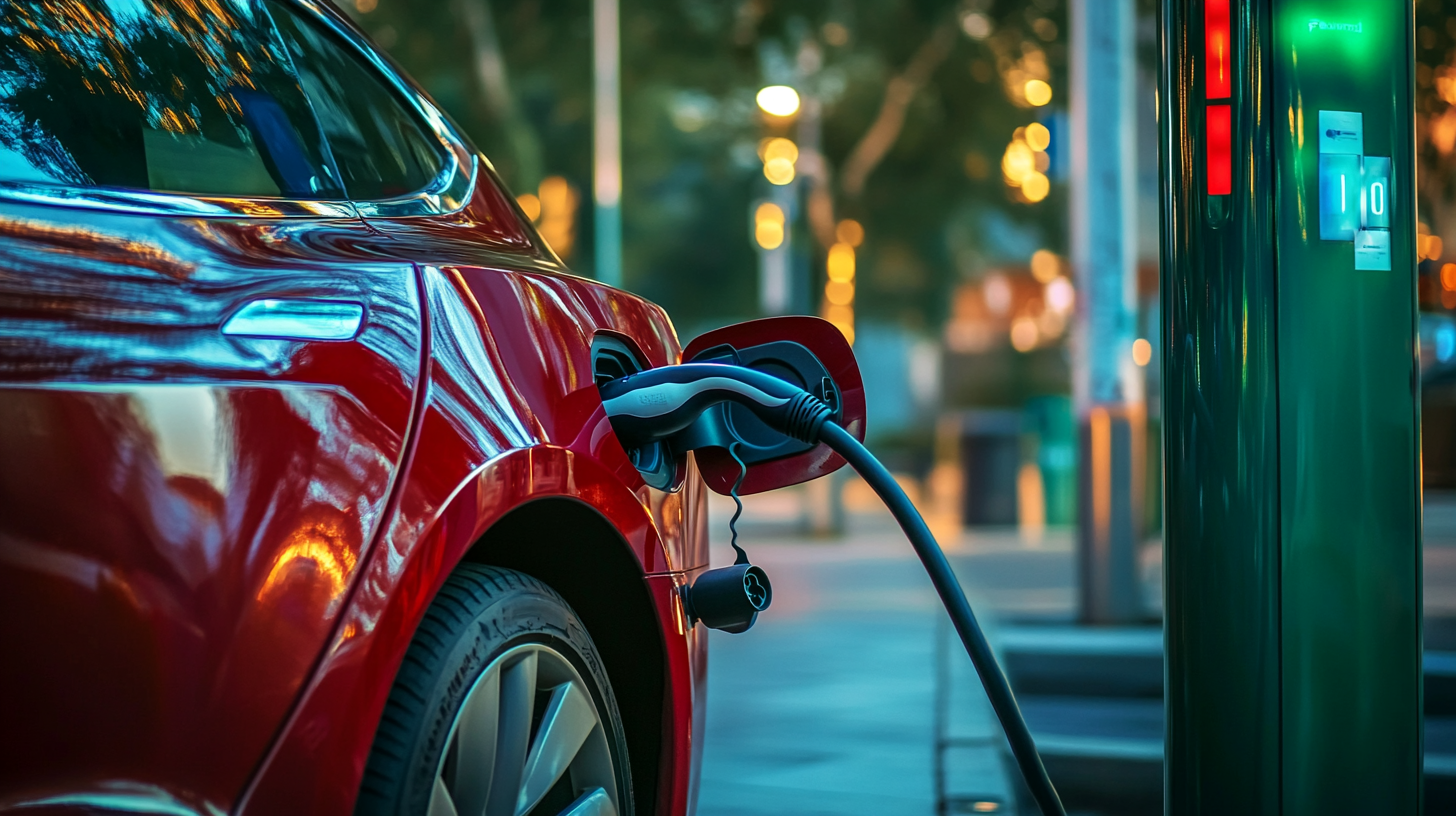As the electric vehicle (EV) market continues to expand rapidly, choosing the right EV Charger AC Adapter has become an essential consideration for global buyers. In this comprehensive guide, we will delve into the key insights and data that will help you navigate the evolving landscape of EV charging solutions.

With numerous options available, it's vital to understand the 2025 industry trends and the innovative technologies driving these changes. Whether you're a first-time EV owner or looking to upgrade your charging setup, our comprehensive overview will provide you with the necessary tools to make informed decisions.
Join us as we explore the diverse types of EV Charger AC Adapters and the solutions tailored to meet the needs of both individual consumers and businesses alike.
When considering the best EV charger for your electric vehicle, understanding the distinctions between different types of chargers is crucial. The three primary categories—Level 1, Level 2, and DC Fast Charging—cater to various needs and charging scenarios. Level 1 chargers are typically standard 120V outlets that can be found in most homes. They are convenient but relatively slow, adding about 3-5 miles of range per hour, making them suitable for overnight charging or for drivers with lower daily mileage.
In contrast, Level 2 chargers operate at 240V and can significantly reduce charging time, offering a range of approximately 10-60 miles per hour, depending on the vehicle and charger specifications. These are commonly installed in residential garages or public charging stations, making them ideal for regular use. Finally, DC Fast Charging stations are designed for quick, on-the-go charging, providing substantial range in a short amount of time—up to 200 miles in just 30 minutes. These are mainly found along highways for long-distance travel, allowing drivers to recharge quickly while taking a break. By understanding these differences, buyers can select the right charger that meets their lifestyle and driving habits.
When selecting an EV charger AC adapter for your electric vehicle, several key features should influence your decision. First, consider the charging speed, which is typically measured in kilowatts (kW). A higher kW rating means faster charging, enabling you to get back on the road in less time. Look for adapters that support both Level 1 and Level 2 charging options, as they offer versatility for different power sources, whether you're at home or in a public charging station.
Another important aspect is compatibility with your specific electric vehicle model. Not all adapters fit every EV, so ensure the one you choose is compatible with your car’s model and charging port type, whether it’s J1772, Type 2, or another standard. Additionally, features like built-in safety mechanisms are crucial for protecting both your vehicle and the charger from power surges or overheating. Prioritizing these features will ensure that you choose an EV charger AC adapter that meets your needs effectively and safely.

When evaluating the price range for quality EV charger AC adapters, it’s essential to consider various factors that impact cost, including brand reputation, technological features, and market demand. According to a recent report from Bloomberg New Energy Finance, the average cost of home EV charger AC adapters globally ranges from $300 to $600. Premium models featuring advanced connectivity and fast charging capabilities can push this price to over $800. Such investments are justified by the convenience and efficiency they offer, making them a valuable addition for both individual consumers and businesses.
**Tip:** When selecting an EV charger, look for models that adhere to international standards such as IEC 62196. This ensures compatibility and safety, which are crucial for long-term usage without overpaying for unnecessary features.
Moreover, the cost of EV charger AC adapters can also vary significantly by region. For instance, in North America, prices tend to be higher due to a more developed infrastructure and greater consumer demand. Conversely, in parts of Asia, rising competition has led to more affordable options, often available under $300.
**Tip:** Research local market trends and available subsidies that can offset costs. Many regions offer incentives for EV infrastructure, which can make high-quality chargers more accessible.
When selecting the best EV charger AC adapter, understanding global standards and regulations is crucial for buyers. Recent reports highlight that the expansion of publicly accessible charging infrastructure is vital to match the convenience offered by traditional refueling options. According to the Global EV Outlook 2023, the lack of accessible charging stations remains a significant barrier, as consumers are increasingly seeking reliable and widespread charging availability. This reflects a broader trend wherein nearly 50% of respondents in recent surveys cited high EV prices as their primary concern, indicating that affordability and accessibility are key factors influencing the adoption of electric vehicles.
Furthermore, the International Energy Agency notes in its 2021 report that policies aimed at promoting electric vehicle deployment are essential for establishing a robust charging ecosystem. Stricter regulations are pushing automakers to adapt, yet many continue to lobby against tighter pollution rules. Despite this, the automotive industry is witnessing a push toward greater EV market share, with projections suggesting that EVs could make up 67% of new sales in the near future. For prospective buyers, staying informed about these evolving standards not only helps in choosing the right EV charger but also aligns their decisions with the broader goals of sustainability and innovation in the automotive sector.
| Charger Type | Charging Speed (kW) | Connector Type | Global Standards | Regulatory Compliance |
|---|---|---|---|---|
| Level 1 AC Charger | 1.4 - 1.9 kW | NEMA 5-15 | IEC 61851 | UL, CSA |
| Level 2 AC Charger | 3.7 - 22 kW | Type 1, Type 2 | IEC 62196 | CE, UL, RoHS |
| DC Fast Charger | 50 - 350 kW | CHAdeMO, CCS | IEC 61851-23 | UL, ISO 15118 |
| Wireless EV Charger | 3.6 - 11 kW | Inductive Coupling | IEC 61980 | ISO 15118 |
 As electric vehicles (EVs) continue to gain popularity worldwide, selecting the right AC charger adapter is crucial for optimal performance and convenience. In this review, we delve into the top brands and models available on the market, focusing on key features, pricing, and user feedback. From industry leaders like ChargePoint and ClipperCreek to emerging players offering innovative designs, each product brings unique strengths to the table.
ChargePoint’s Level 2 charger, for instance, is renowned for its user-friendly app and robust scheduling capabilities, making it an excellent choice for tech-savvy EV owners.
As electric vehicles (EVs) continue to gain popularity worldwide, selecting the right AC charger adapter is crucial for optimal performance and convenience. In this review, we delve into the top brands and models available on the market, focusing on key features, pricing, and user feedback. From industry leaders like ChargePoint and ClipperCreek to emerging players offering innovative designs, each product brings unique strengths to the table.
ChargePoint’s Level 2 charger, for instance, is renowned for its user-friendly app and robust scheduling capabilities, making it an excellent choice for tech-savvy EV owners.
Moreover, comparing the durability and safety ratings of various models is essential for informed decision-making. Many chargers come with waterproof ratings and built-in safety features that protect both the EV and the home electrical system. For eco-conscious buyers, adapters that boast energy-efficient technologies should also be prioritized. With this comparative review, consumers can navigate the overwhelming options and find the perfect charging solution that meets their needs, ensuring a seamless and efficient EV ownership experience.








